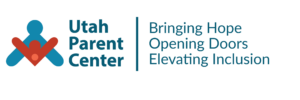
Utah Parent Center's Executive Director Responds to Salt Lake Tribune Article
The article published by the Salt Lake Tribune highlights the issues of subminimum wage, sheltered workshops, and the systematic lack of choice in regard to competitive integrated employment for individuals with disabilities. Staci Christensen’s story is an echo of hundreds of similar stories of individuals with disabilities who have had to fight to gain the opportunity for integrated employment and fair compensation, which is given freely to their non-disabled peers.
The Department of Justice’s (DOJ) findings are a call to action. The over-reliance on segregated settings and the prolonged waitlists for services represent significant barriers to meaningful community integration for people with I/DD. The article rightly points out that individuals with disabilities deserve the same opportunities to work, socialize, and live independently as their nondisabled peers and most importantly the right to choose.
In today’s society, the concept of choice is a fundamental right that shapes our lives, influences our happiness, and determines our paths. Yet, for people with disabilities, the freedom to make choices is often limited or overlooked, or complicated by limited access to the systems and services that are intended to support them. The importance of informed choice for individuals with disabilities cannot be overstated, as it is crucial for fostering independence, dignity, and a sense of agency.
Choice empowers people with disabilities by allowing them to take control of their lives. When individuals can make decisions about their daily activities, employment, living arrangements, and social interactions, they gain a sense of autonomy. This empowerment is vital for building self-confidence and enables people with disabilities to pursue their passions and interests, leading to a more fulfilling and engaged life.
Christensen’s experience at Golden Corral, where she felt valued and utilized her skills, stands in stark contrast to her time in the less fulfilling, isolated environment of a sheltered workshop. Her words poignantly capture the need for greater inclusion: “I should be out in the real world more often and people shouldn’t be afraid of me. And they should be able to accept the fact that I’m as real as it gets and I’m just like everyone else.”
Segregated programs, while providing some support, must evolve to promote more inclusive, community-based employment opportunities. As noted by Matthew Wappett from the Utah State University Institute for Disability Research, Policy & Practice, “paying people with disabilities below minimum wage is a form of exploitation”. True inclusion means fair compensation and the chance for individuals to pursue their interests and talents, as Christensen aspires to do in her goal to become a chef.
It is encouraging to see that Utah’s Department of Health and Human Services is open to working with the DOJ to improve their services. However, real change will require a shift in how services are structured and delivered. Youth with disabilities must have meaningful transition to adult services, and must have the opportunity to train for employment early in their transition period, which begins in the school setting and at home. The agencies who are tasked with providing services must work together and not in silos. Leaders must develop a framework for choice and opportunity that should include:
- Policy and Legislation: Implement laws and policies that guarantee the right to choice in all areas of life, including education, employment, housing, and healthcare.
- Support Services: Develop and fund support services that enable individuals with disabilities to make informed choices. This includes providing access to information, advocacy, and personalized planning, that is initiated early and is intentional.
- Community Engagement: Foster community programs that promote inclusion and offer diverse opportunities for engagement. Encourage businesses and organizations to create accessible environments and practices.
- Education and Training: Educate families, caregivers, and professionals about the importance of choice and how to support individuals in making their own decisions.
- Monitoring and Accountability: Establish systems to monitor the implementation of choice-based practices and hold institutions accountable for upholding the rights of people with disabilities.
The voices of people like Staci Christensen remind us that those with disabilities are integral members of our communities. They deserve to be seen, heard, and valued, and the community as a whole benefits from the diversity. As the Disability Law Center states, “it is indeed time for state leaders to ensure that people with disabilities have the right to live their lives fully integrated into their communities, with the dignity and respect they and the greater community deserve”. As parents and caregivers of individuals with disabilities and special health care needs we know that our loved ones bring value to the community and deserve full and equitable access.
Read the article: https://www.sltrib.com/news/business/2024/07/15/shredding-paper-folding-laundry/





